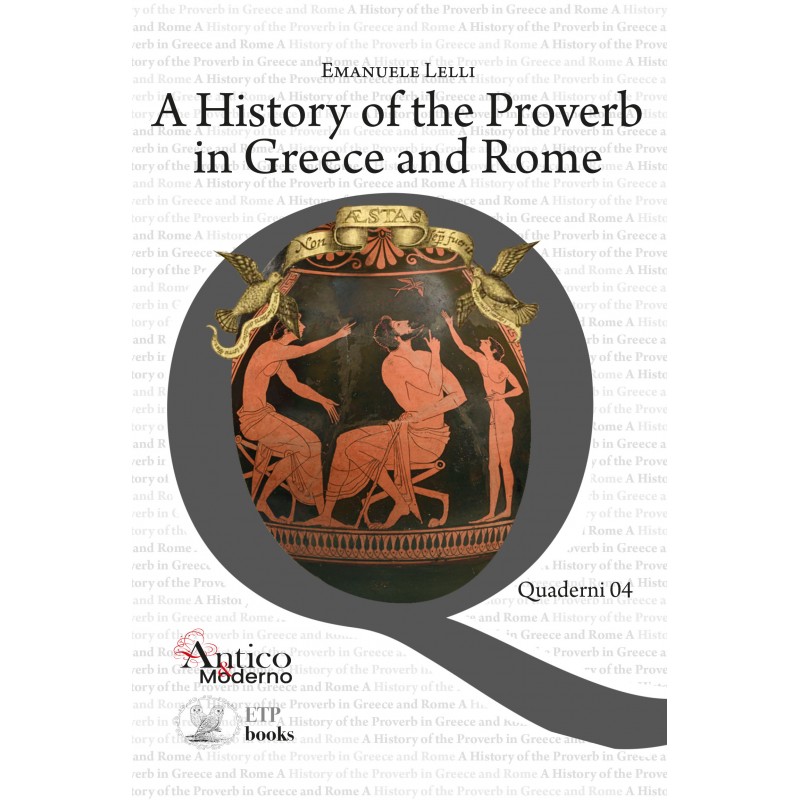


In the ancient world, expressing oneself in proverbs and sententiae was something profoundly organic to the culture itself: both to the folkloric culture – as can be glimpsed from what we are able to reconstruct, both
philologically and comparatively – and to the learned culture – as is clearly evident from our literary documentation. Proverbiality was, on closer inspection, a truly fundamental form of ancient thought and it manifested itself as such in every communicative expression. Knowledge and communication (and the communication of knowledge) were based on the proverb because they were mostly transmitted orally. They were proverbial because they were sanctioned by tradition, which constituted their most effective validation.
They were proverbial because, from an early age, people learned to express themselves in this way, from their families, if they were illiterate, or from their teachers, if they were more fortunate.
This study aims to document the dominant proverb nature of ancient culture, both in terms of its direct literary expression, through an overarching analysis of the use and function of the proverb from Homer to the dawn of Humanism, and in terms of its terminological reflection and awareness.
Scheda tecnica